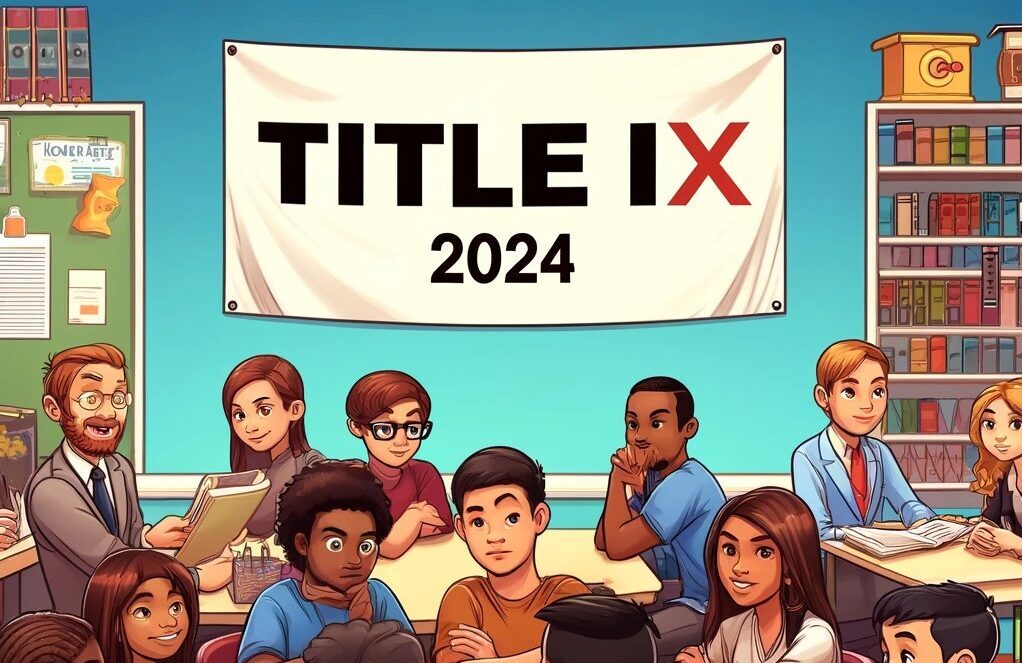Title IX, the landmark legislation aimed at preventing sex discrimination in education, underwent significant changes in 2024. These revisions mark substantial changes in the rules and procedures related to discrimination, harassment, and violence in educational settings. It’s not just about being aware of these changes, but understanding them is paramount for those navigating higher education institutions, as it underscores our collective responsibility to ensure a safe and inclusive educational environment.
Here are some of the critical changes to Title IX regulations that demand attention:
Expanding the Scope of Prohibited Discrimination
The 2024 regulations broaden the scope of prohibited discrimination beyond just sex to include sex characteristics, pregnancy or related conditions, sexual orientation, and gender identity. This expansion reflects a more inclusive understanding of discrimination in educational environments. The regulations expand Title IX’s prohibitions to include discrimination or harassment based on sexual orientation and gender identity, consistent with the Supreme Court’s interpretation in Bostock v. Clayton County. They also prohibit policies and practices that prevent students from participating in a program consistent with their gender identity, with a few exceptions.
Redefining “Sexual Harassment”
The definition of “sexual harassment” now encompasses a broader range of behaviors termed “sex-based harassment.” This includes various forms of harassment such as quid pro quo sexual harassment, sexual assault, dating violence, domestic violence, and stalking, along with hostile environment harassment. The regulations lower the threshold of hostile environment harassment to include any “unwelcome sex-based conduct that, based on the totality of the circumstances, is subjectively and objectively offensive and is so severe or pervasive that it limits or denies a person’s ability to participate in or benefit from the recipient’s education program or activity.”
Extending Title IX Processes and Procedures
One of the most notable changes in Title IX is its extended reach. It now addresses sex-based hostile environments in all educational institutions’ programs or activities, even those occurring outside the United States or beyond the institution’s direct purview. This expansion of jurisdiction is a significant development that we need to be aware of.
Changing “Actual Knowledge” and “Deliberate Indifference” Standards
Schools are now required to respond promptly and effectively to any conduct that may reasonably constitute sex discrimination within their education programs or activities.
Returning to the Single-Investigator Model
Institutions can employ a single-investigator model for handling complaints, streamlining the investigative process while ensuring fairness and impartiality. The single-investigator model, once lauded for its potential to simplify procedures and reduce stress for survivors of sexual abuse, has come under scrutiny for its inherent flaws. While appearing efficient on the surface, this model has been criticized by experts in Title IX for its lack of due process protections, potential for bias, and increased likelihood of overlooking crucial facts. Despite these concerns, the new rules allow colleges to use single-investigator frameworks within its draft Title IX rule, which has sparked controversy. Civil liberties advocates and Title IX practitioners argue that such a move could further erode trust in colleges’ Title IX processes, which have already been heavily politicized. This return to the single-investigator model reignites debates about the balance between protecting survivors and ensuring fair treatment for all parties involved.
Access to Informal Resolution
The regulations offer the option for an informal resolution process for sex discrimination complaints, with certain exceptions, providing greater flexibility in resolving issues outside formal procedures.
Designating Confidential Employees
The regulations broaden the group of employees who must notify the Title IX coordinator when they have information about conduct that reasonably may constitute sex discrimination under Title IX to include all those who are not confidential employees and who have the authority to institute corrective measures on behalf of the institution or who have responsibility for administrative leadership, teaching, or advising in the educational program. The introduction of three categories of confidential employees aims to ensure individuals have access to support and resources while maintaining confidentiality when reporting instances of sex discrimination.
Expanded Title IX Coordinator Responsibility
The rules impose a new duty on Title IX coordinators to more actively monitor programs and activities for sex discrimination. They must also seek out barriers to reporting that may prevent you as a Title IX Coordinator from learning of discrimination.
Accommodating Pregnant and Individuals
Enhanced provisions mandate reasonable modifications for pregnant individuals, lactation accommodations, and access to private lactation spaces for both students and employees.
These changes signal a significant shift in how educational institutions address and prevent sex discrimination. However, implementing these regulations presents challenges and considerations:
Policy Updates:
Institutions must update policies to align with the expanded definitions and procedures outlined in the new regulations, particularly regarding LGBTQI+ status and pregnancy-related accommodations.
Training Requirements:
Comprehensive training for all employees is crucial to ensure compliance with reporting obligations and to navigate the nuances of the revised procedures effectively.
Grievance Procedures:
Institutions must carefully evaluate and potentially revise grievance procedures to accommodate the changes while ensuring fairness and due process for all parties involved.
Off-Campus Behavior:
The regulations now extend to off-campus conduct that contributes to a sex-based hostile environment, requiring institutions to address incidents beyond their immediate jurisdiction.
K-12 Changes:
All non-confidential employees must notify the Title IX Coordinator about any conduct that could reasonably be considered sex discrimination. Notice of allegations does not have to be in writing.
As we navigate the new terrain of Title IX, it’s clear that the landscape of protections against sex discrimination in education has undergone a significant evolution. While aiming to create more inclusive and equitable environments, these changes are not without their complexities and challenges. The return to the single-investigator model, once hailed for its efficiency, now prompts renewed debates about the balance between streamlining procedures and ensuring due process for all parties involved. As institutions grapple with policy updates, training requirements, and procedural revisions, it’s essential to understand that there will be challenges. Students will need help navigating these new rules, and K Altman Law stands ready to assist them and protect their rights.




